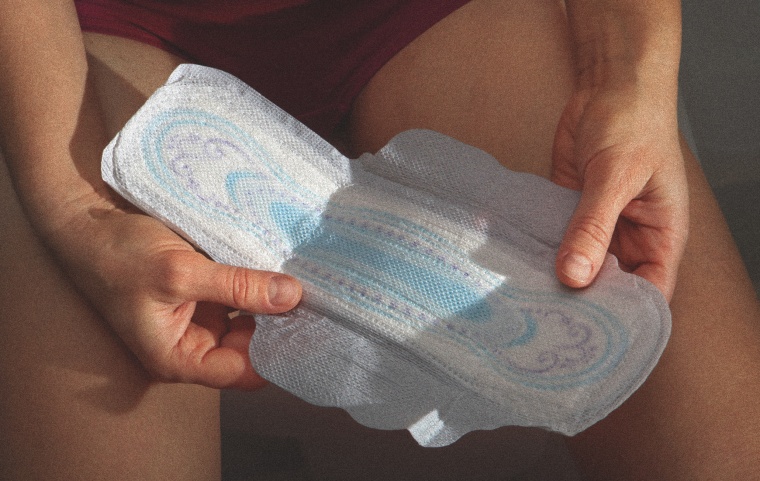The first time Congress passed legislation to address the health needs of Americans in light of the pandemic, via the CARES Act last March, it addressed an urgent health care need by classifying spending on menstrual hygiene products as akin to any other spending on "medical care" — meaning tampons, pads, liners and cups are eligible for tax advantages to those who use flexible spending accounts and health savings accounts.
But far more is needed to address the costs of menstrual hygiene, and unfortunately the law Congress passed Wednesday to provide Covid-19 relief doesn't fill the gap. For many girls and women, every period comes with the anxiety of not knowing whether they will have access to the resources and products they need to manage their cycles.
Industry surveys estimate that 1 in 4 women struggle to purchase menstrual supplies because of poverty and that 1 in 5 girls have missed school because of a lack of menstrual products. Though projections vary, women are calculated to spend a few thousand dollars on their menstrual needs over their lifetimes. The girls and women facing period poverty can't afford their menstrual hygiene products whether or not they are taxed. Poverty doesn't work like that.
Scotland shows us that we can do better. At the end of last year, it passed revolutionary legislation making period products free. Through the Period Products Bill, local authorities are set to ensure that menstrual products can be obtained free of charge by all who need to use them.
While the official distribution plan is still being rolled out, the expectation is that period products will be provided in designated public places, such as community centers, youth clubs and pharmacies, and that the expense will be borne by taxpayers. A service to deliver free period products to low-income people may be involved, as well. Given the desire to make sure that anyone who is in need has access to the products, the plan is likely to evolve over time.
Monica Lennon, a member of the Scottish Parliament who has campaigned to end period poverty since 2016, described her bill as a "practical and progressive" measure that makes her country the first to provide such a benefit.
And New Zealand just announced that beginning in June, all schools will offer free sanitary products to students — yet another destination that's ahead of the U.S.
These moves are all the more vital because of the pandemic. Covid-19 has devastated the economy, and for those who rely on a small single income to support their families, covering the cost of menstrual hygiene products can feel out of reach even though it's an essential expense.
Americans can't wait any longer.
Since 2015, increased advocacy around period equity propelled 32 states to introduce bills to exempt pads and tampons from sales taxes. However, only some of them have succeeded in making these sanitary necessities tax-exempt so far. And tax exemption is only a start. We need to find a way for health insurance to fully cover menstrual hygiene products.
I am urging the new administration to help girls and women across the country. We need policies that will benefit not just the privileged but also those who live every day in deep poverty. For progress to be made, taxpayers need to cover the costs the same way Scotland does.
The model can be distinctly American, however. For instance, the way schools provide free lunches to students who qualify could be a blueprint for every school district to provide menstrual hygiene products to students. Menstrual hygiene products, like food, are a basic necessity.
It is now 2021. What year will it be when fighting period poverty becomes a priority?



